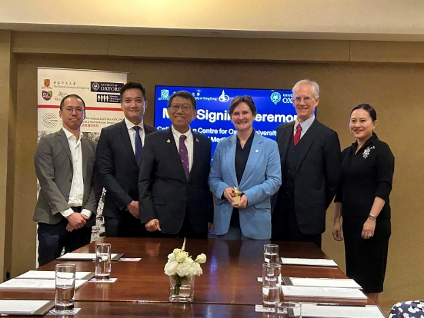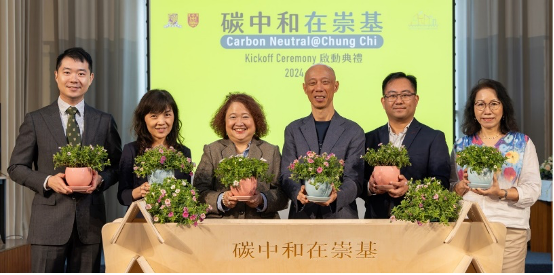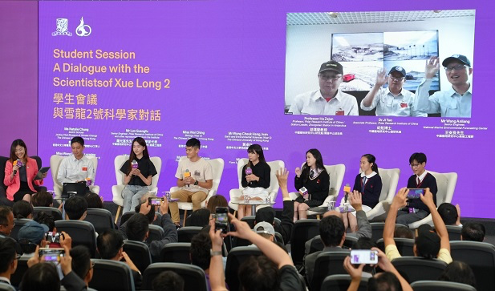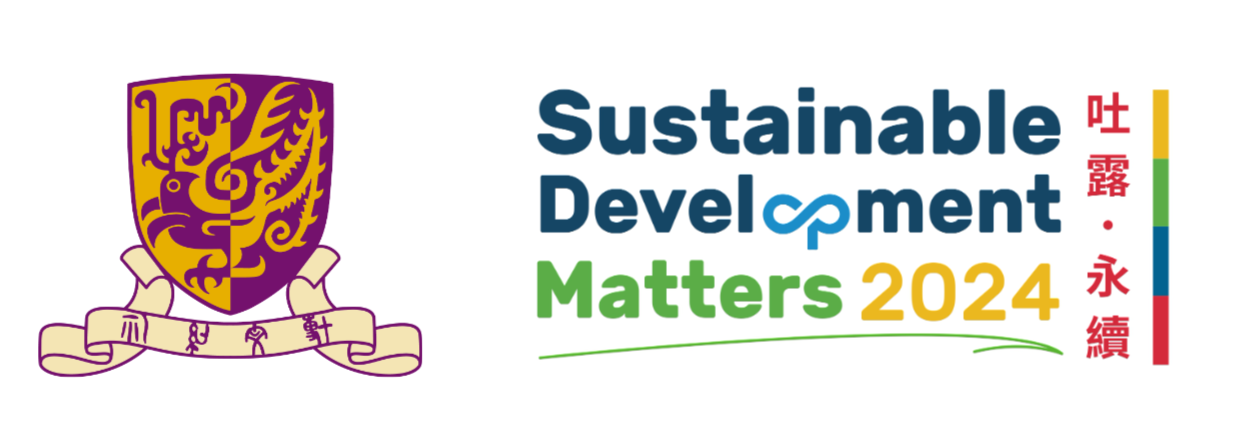
SDG 13| Climate Action
Take urgent action to combat climate change and its impacts
Climate change remains a pressing issue, and continues to pose a significant threat to the future of our planet. CUHK is dedicated to advancing climate action, and was the first local university to commit to achieving carbon neutrality. The University endeavours to lead in climate research, fostering a culture that advocates for constructive shifts in understanding, perspectives, and actions related to climate change.
Curriculum
12 related courses were offered in the 2023–24 academic year.
Policies
CUHK, as a socially conscientious institution, has implemented the Social Responsibility and Sustainable Development Policy. The University is dedicated to realizing University Social Responsibility (USR) objectives that align with the United Nations’ Sustainable Development Goals. Among these goals is the ambition to attain carbon neutrality by 2038, underscoring CUHK’s commitment to combatting climate change and lessening its carbon footprint.
Energy consumption is a primary contributor to greenhouse gas emissions. CUHK has developed an Energy Efficiency and Conservation Policy and Energy Efficiency and Conservation Guidelines to promote responsible and efficient energy usage among campus inhabitants. By deploying energy-efficient infrastructure and constantly promoting energy-saving behaviours by all staff and students of the University, CUHK aims to curtail energy consumption and carbon emissions.
Air travel is known to have a significant carbon footprint, making it a major contributor to climate change. CUHK’s Carbon Offsetting Encouragement Policy is designed to encourage all its staff members to offset carbon emissions from their air travel by buying carbon offsets to support projects that reduce carbon emissions in other ways.
Research
The disruption and loss caused by Super Typhoon Saola in the summer of 2023, followed by the most severe black rainstorm ever experienced in Hong Kong, served as a salutary reminder of the importance of enhancing disaster preparedness capacity and response at all levels via research-informed and evidence-based policy advocacy, training and drills. Severe weather events such as typhoons, flooding and wildfires are becoming more frequent and more threatening as a result of climate change.
After a pause due to the covid-19 pandemic, the Collaborating Centre for Oxford University and CUHK for Disaster and Medical Humanitarian Response continues to provide medical humanitarian assistance internationally. CUHK is the Asian partner in the international research team led by the University of Oxford to conduct an eight-year multidisciplinary international global health research project, ‘After the end: lived experiences and aftermaths of diseases, disasters, and drugs in global health’. CUHK will continue to consolidate its status as an international centre of expertise in disaster and medical humanitarian response research, education and policy consultation; help build capacity among researchers and practitioners in the Asia-Pacific region to conduct research and provide local and international medical humanitarian assistance; and elevate Hong Kong as a leader in global disaster risk reduction policy.

Commitment to carbon neutrality
In 2024, Chung Chi College launched the Carbon Neutral @ Chung Chi campaign, introducing the Chung Chi Carbon Neutral Garden and the Chung Chi Carbon Neutral Challenges. This comprehensive initiative aims to inspire and empower College teachers and students to proactively participate in the reduction of carbon emissions, fostering a culture of sustainability and environmental responsibility within the campus community.

Local education programmes on climate change
As a leader in sustainability, CUHK houses the Jockey Club Museum of Climate Change (MoCC), the world’s first museum of its kind, and co-hosts the Hong Kong chapter of the Sustainable Development Solutions Network (SDSN Hong Kong), a United Nations initiative to mobilize knowledge institutions to promote practical problem-solving for sustainable development.
The Xuelong 2 is China’s first domestically built polar icebreaker and scientific research vessel. It is dedicated to conducting scientific expeditions to study climate change. CUHK held a Global Conference on Climate Change to coincide with Xuelong 2’s visit to the city in April 2024, where over 2,000 scientists, policymakers, industry leaders and guests gathered to discuss the latest ideas and findings in the context of polar studies and climate change. During the 2-day conference, academics from across the world shared research and knowledge on topics ranging from the movement of krill in the Antarctic to the melting of polar ice. Additionally, an immersive exhibition entitled ‘Into the Extreme: A Scientific Journey of Xuelong 2’ was held at the MoCC from April to August 2024, offering the public a detailed look at the vessel’s research endeavours and the formidable challenges it encounters.

PREVIOUS
Responsible Consumption and Production
SDG 12
NEXT
Life Below Water
SDG 14
